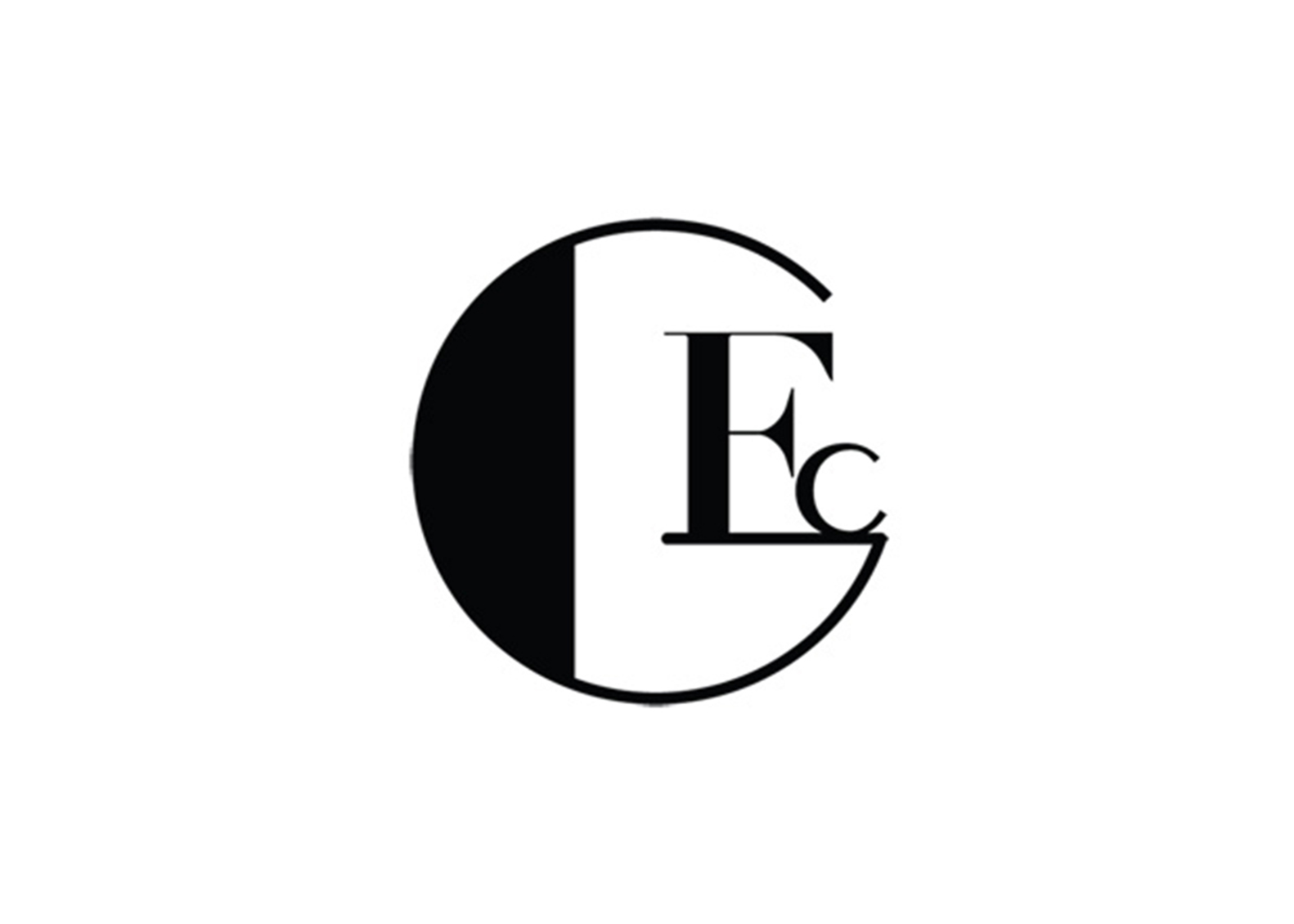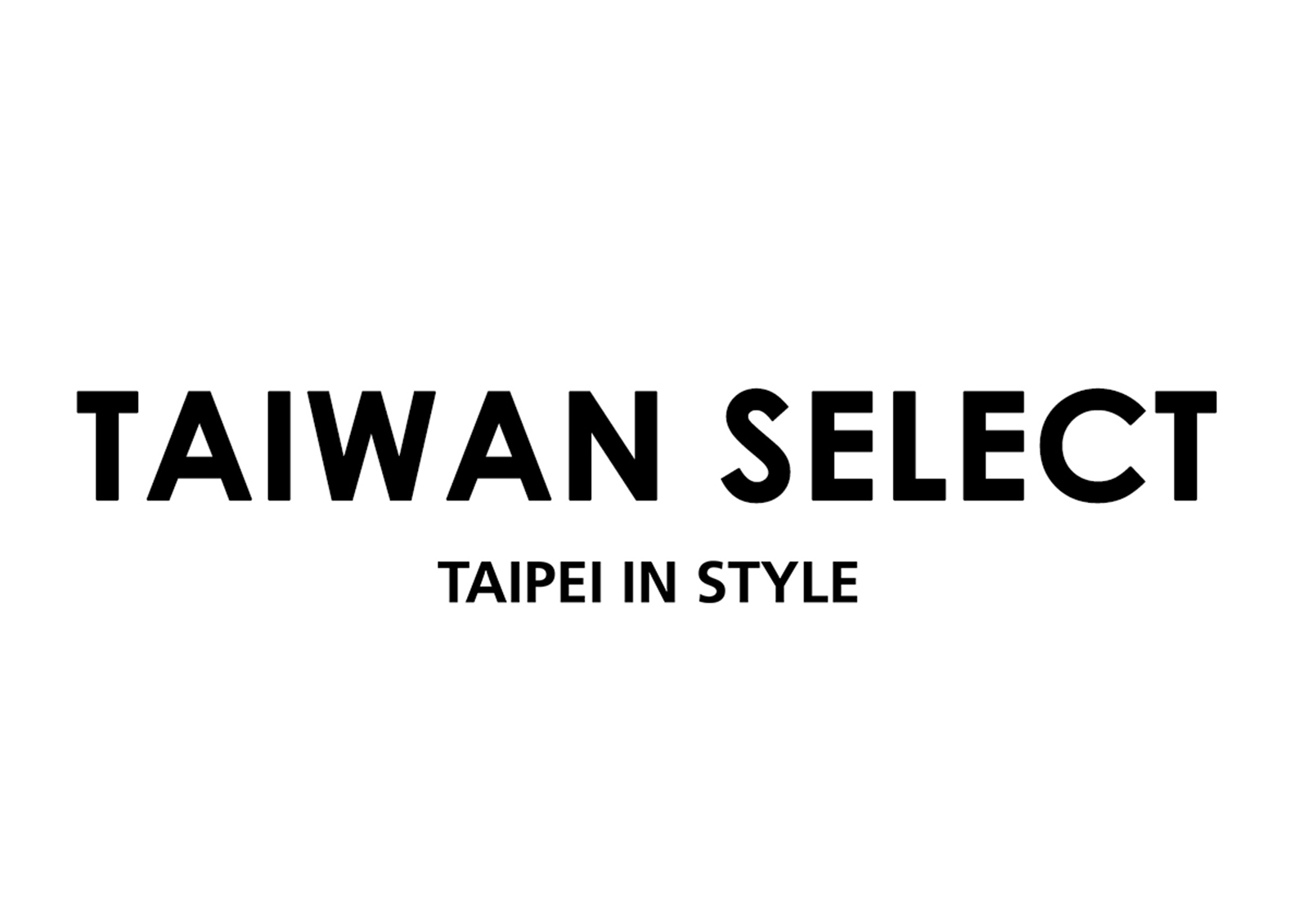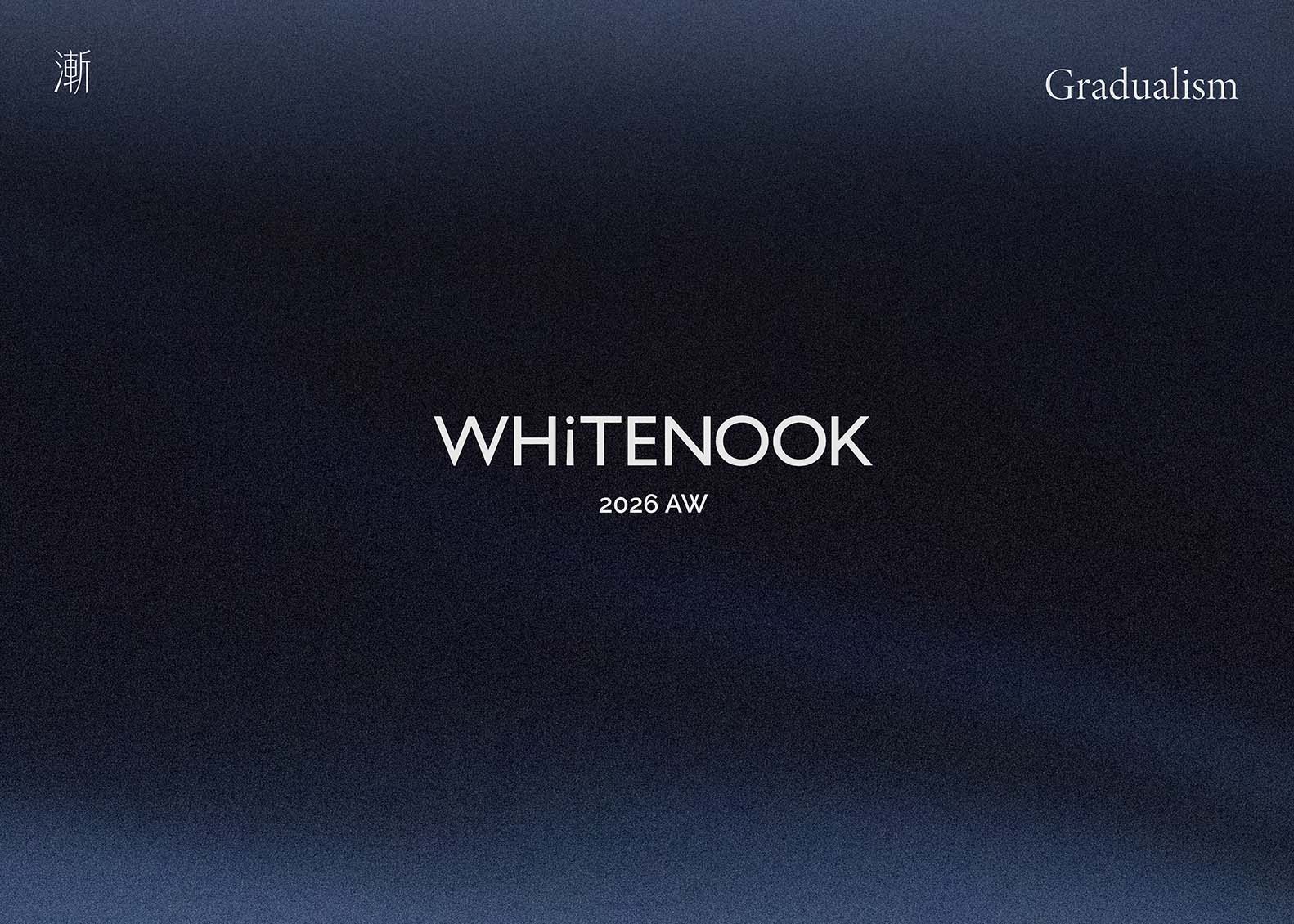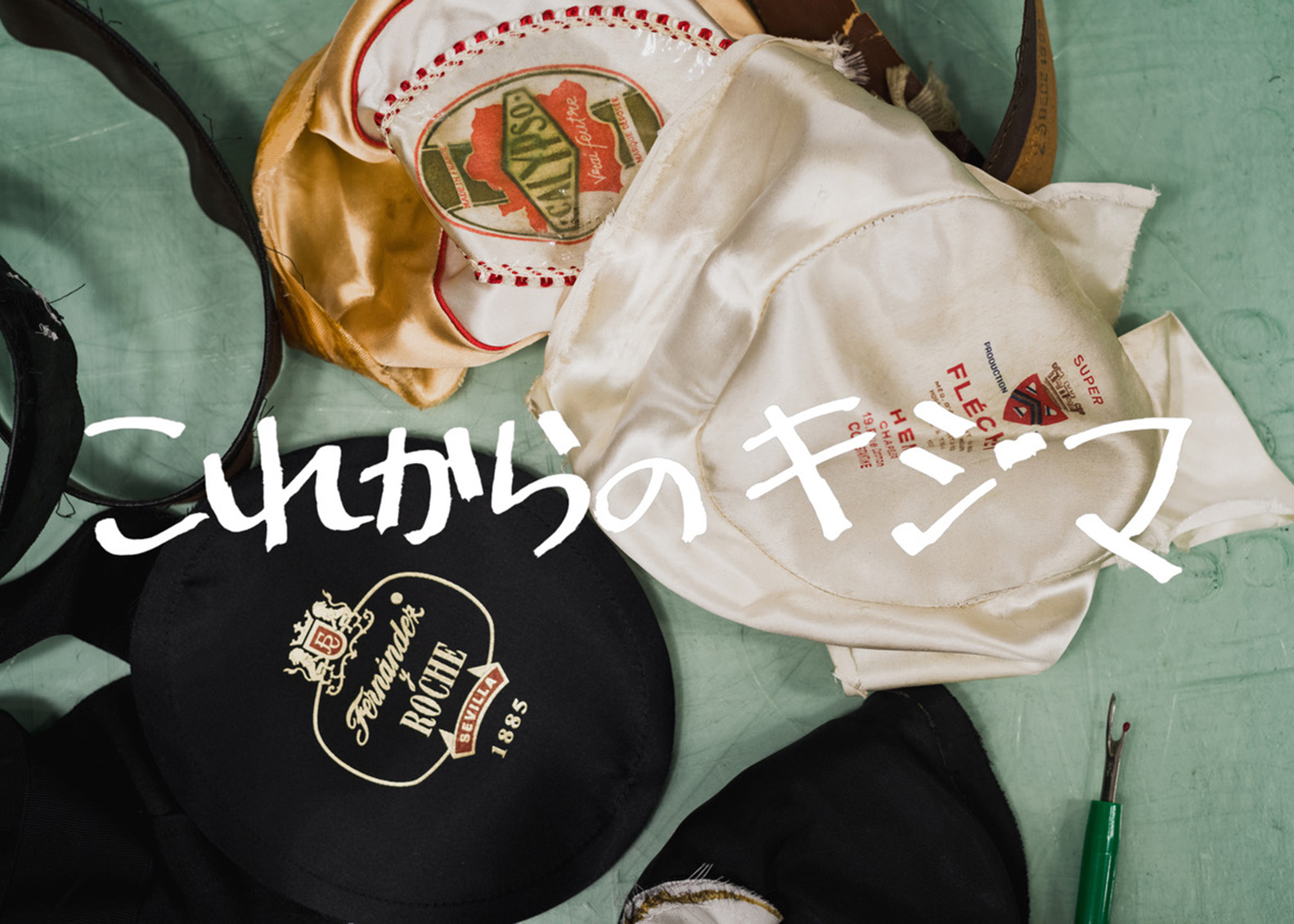[ORIMI] First Participation Questionnaire
Brand information / About the designer
── What inspired you to become a fashion designer? Describe developments leading up to the brand launch.
From a young age, I was drawn to vintage clothing and street culture, fascinated by how style could serve as a form of self-expression. After graduating from university, I launched and managed a select shop, which deepened my relationship with design. Over time, the vision for the kind of clothing I truly wanted to create became clear. In 2020, I founded my brand “ORIMI” to craft garments that explore the dialogue between structure and playfulness—between self and society.
── What is the brand’s concept? What do you want to communicate through fashion designing?
ORIMI is a brand that explores the relationship between the individual and society through structured silhouettes and deconstruction. We address the unease of everyday life and the solitude of urban existence, proposing garments that offer new encounters with the self. We design for those who embody both strength and sensitivity—people who are not bound by traditional gender roles or societal norms, but instead continue to redefine themselves. Through our clothes, we aim to provoke thought and inspire transformation.
── What is your source of inspiration in creating fashion? What is your process of developing a design concept?
My creative process begins with subtle discomforts or moments of alienation I encounter in daily life—especially in the context of urban living. From these sensations, I extract themes and solidify the conceptual core through writing. I then engage in visual research and develop silhouettes that reflect physicality and emotion. My design aims to question, rather than simply adorn—to hold a mirror to both myself and the times I live in.
── Who are your current stockists (areas, retail formats, etc.)? Describe the typical followers of your brand.
In addition to our Tokyo and Osaka flagship stores “THE ELEPHANT,” our brand is carried by select stores both in Japan and internationally (e.g., 10 CORSOCOMO SEOUL). Our followers are mostly in their 30s, culturally curious individuals who approach fashion on their own terms. They seek expressive, experimental styles that transcend gender boundaries and move fluidly between the everyday and the extraordinary.
── Which brands, designers, styles and cultures have had the most impact on your fashion designing, and why?
I have been influenced by Japanese designer brands that blend seamlessly into everyday life while maintaining a distinctive structural quality. In particular, I resonate with the philosophy of creating “everyday wear that retains a sense of discomfort.” I was also deeply impacted by Harajuku street culture and the underground atmosphere of the 1990s, where I learned the freedom of self-expression through style. I am strongly drawn to the approach of using clothing to articulate one’s sense of distance from culture and society.
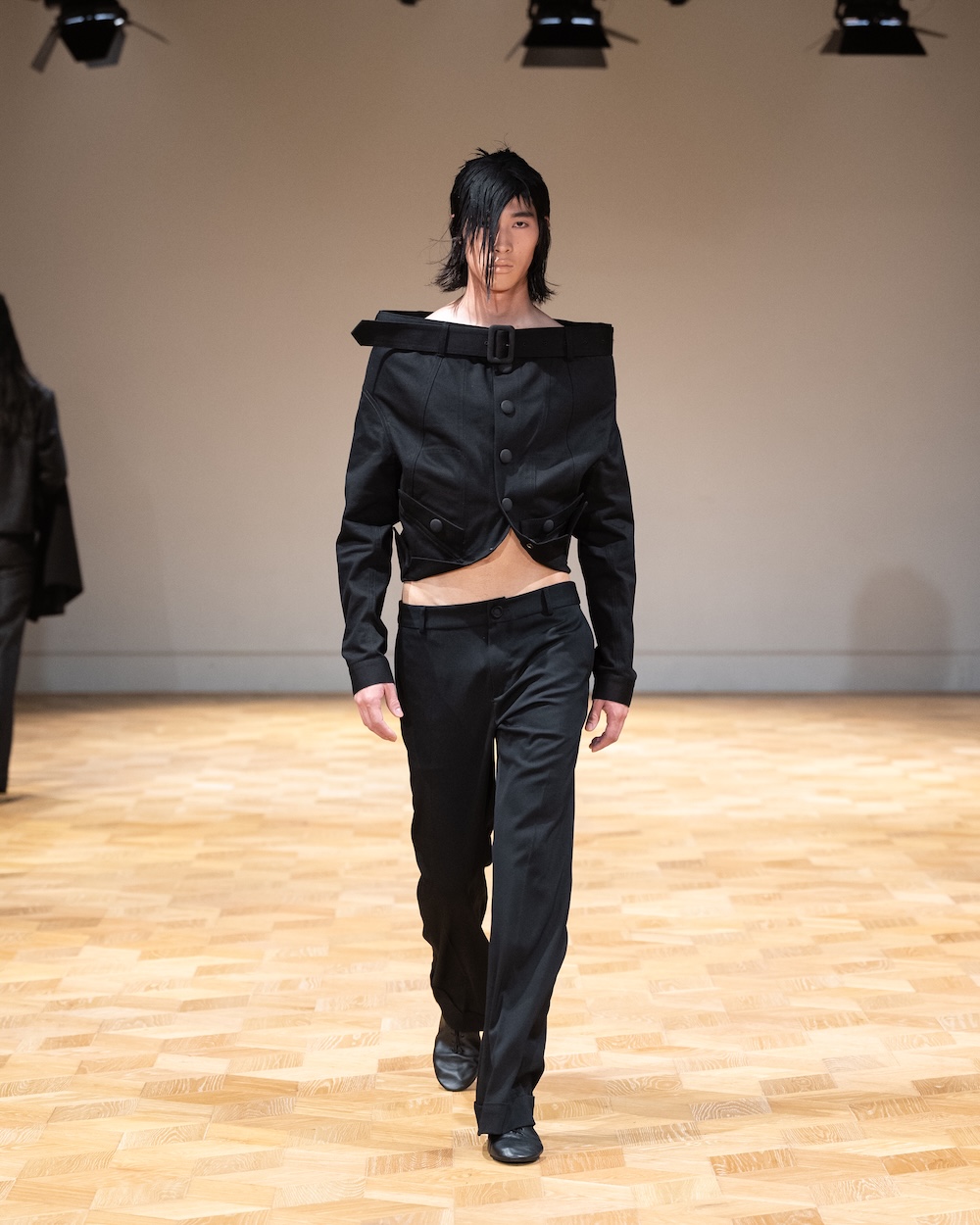
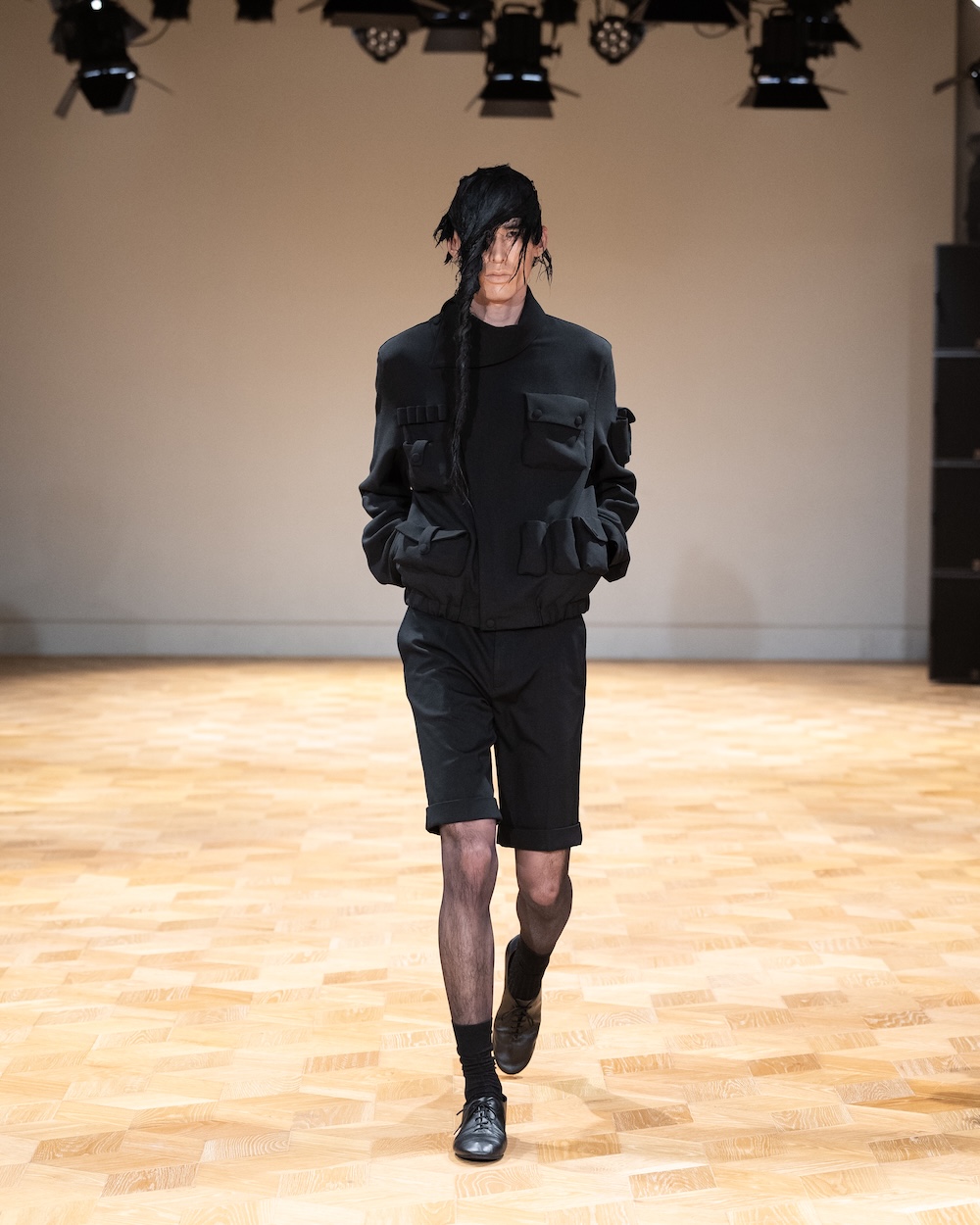
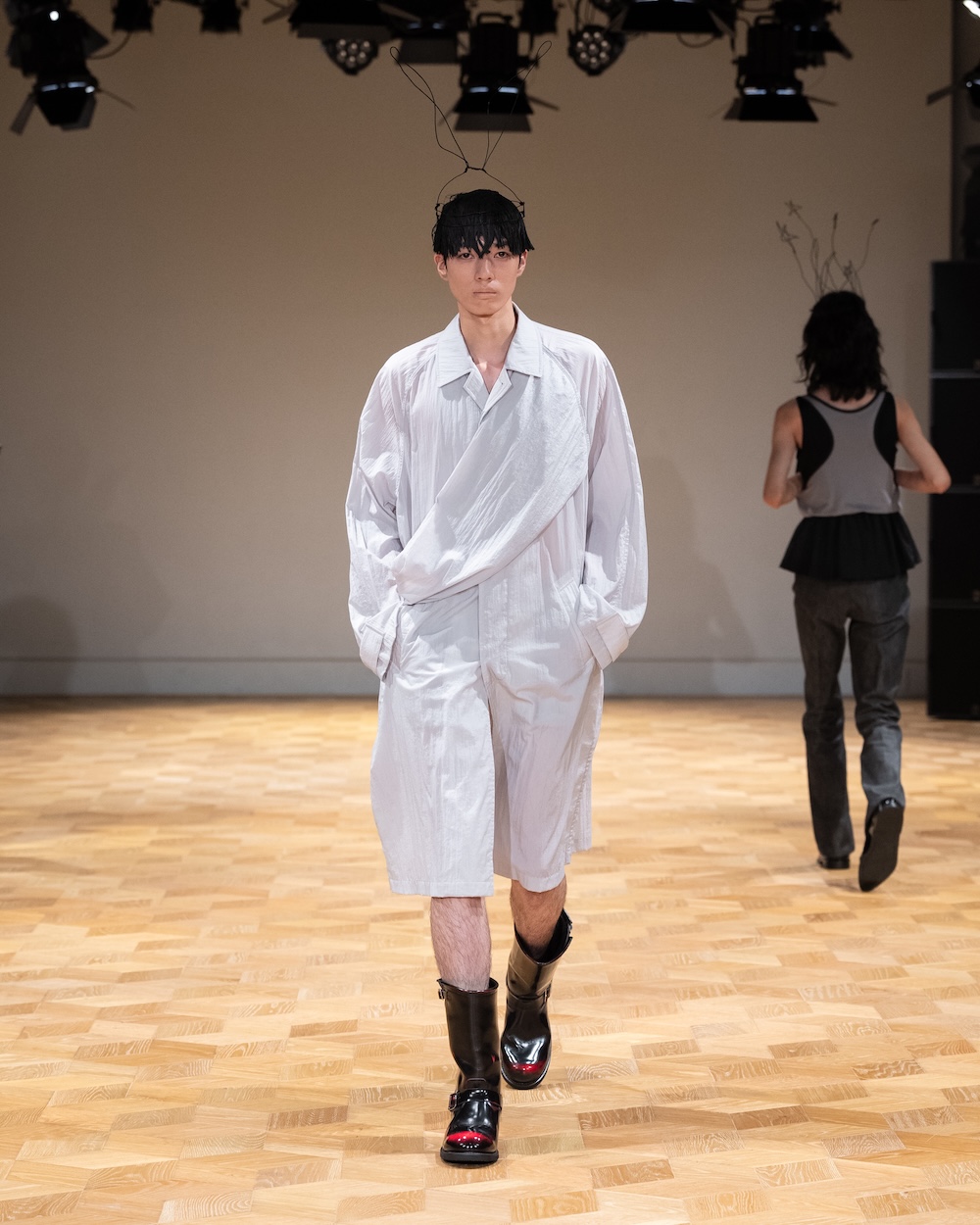
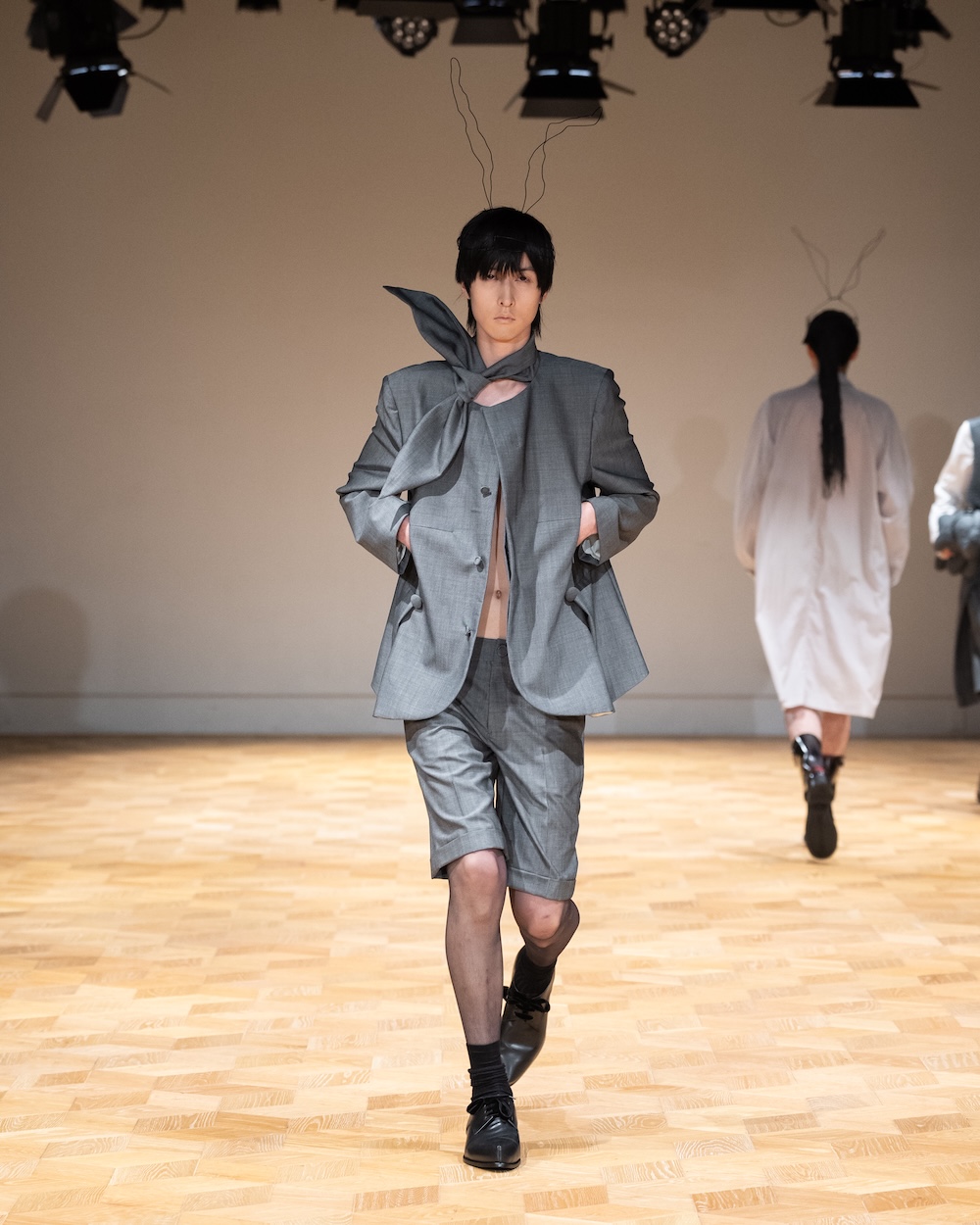
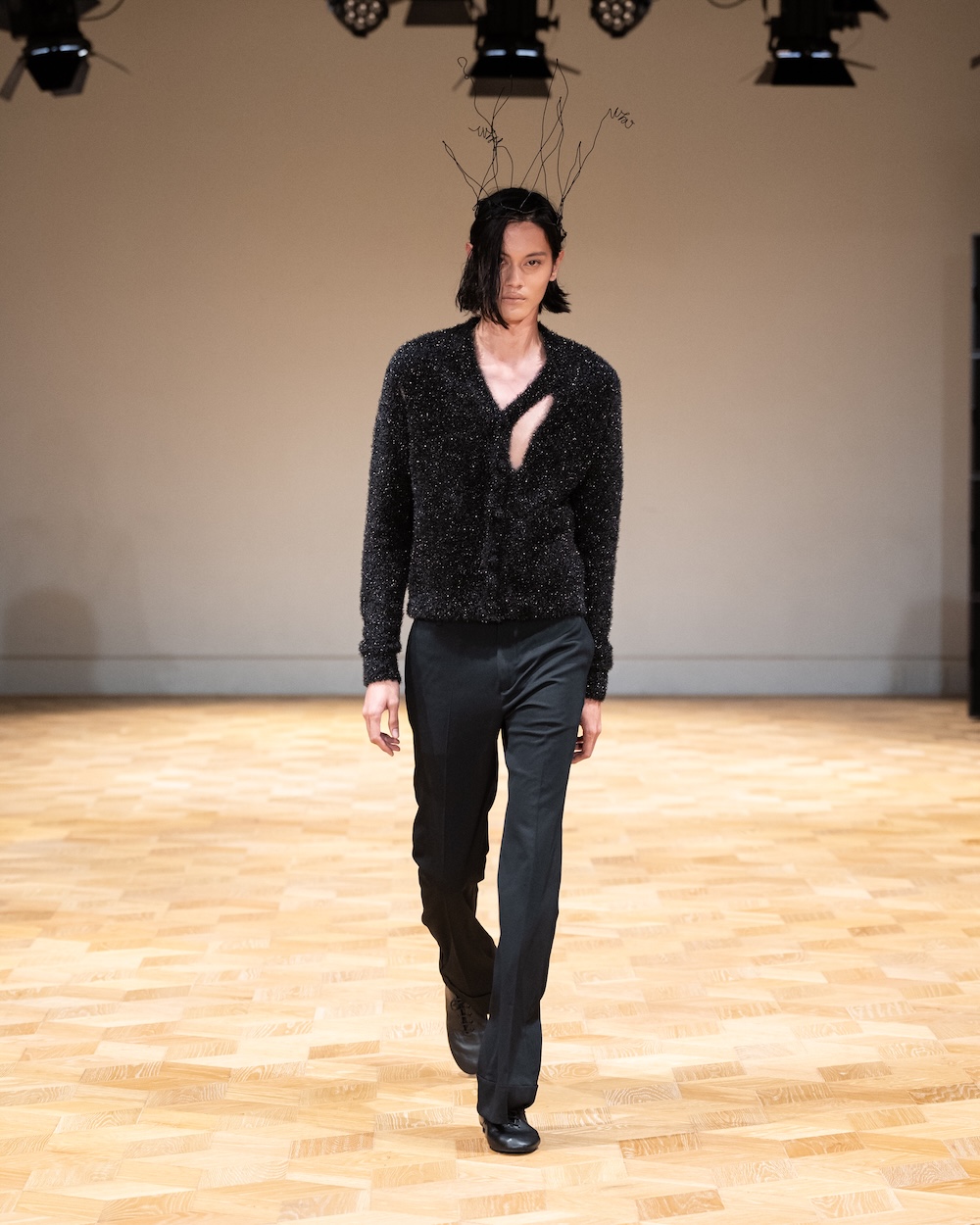
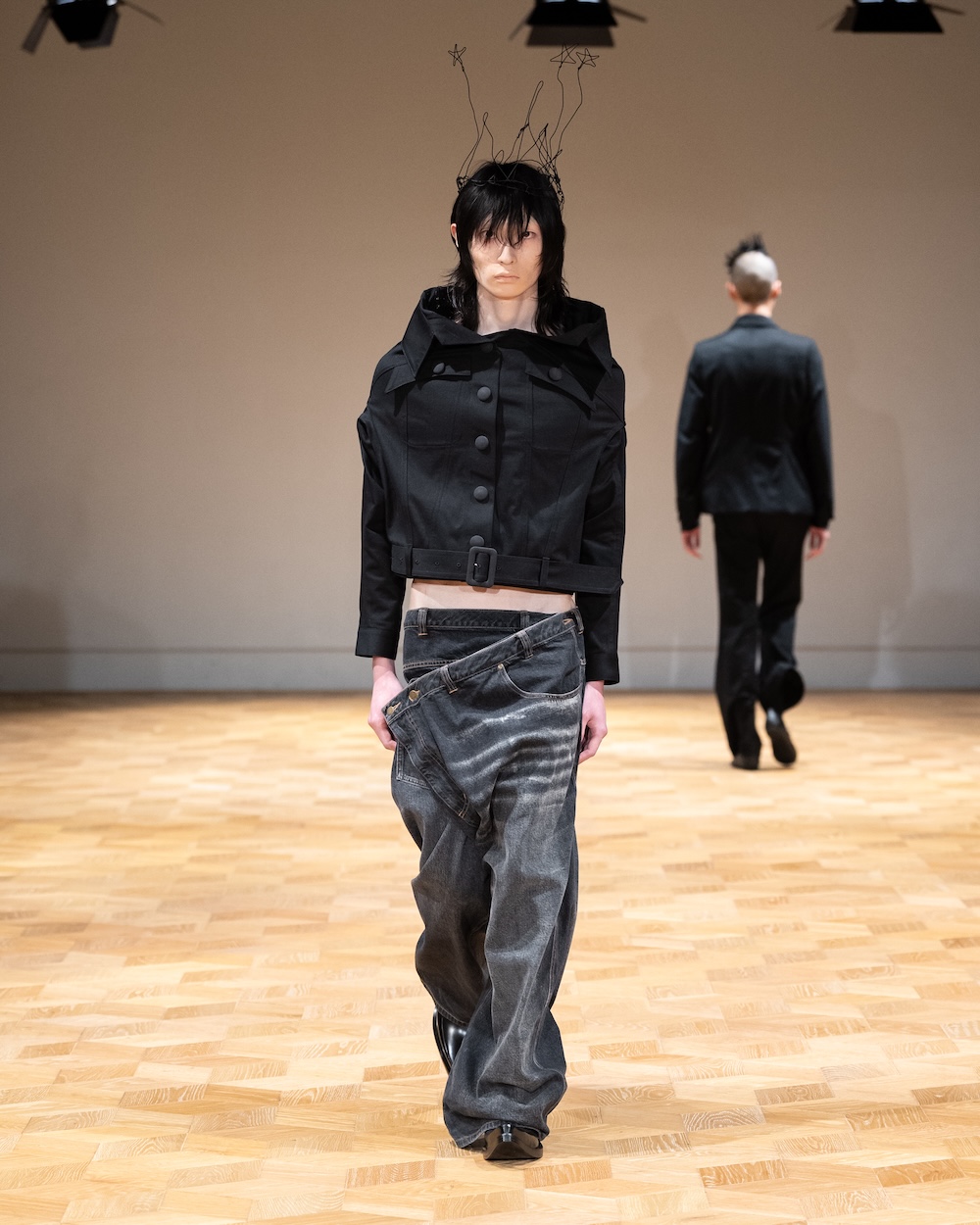
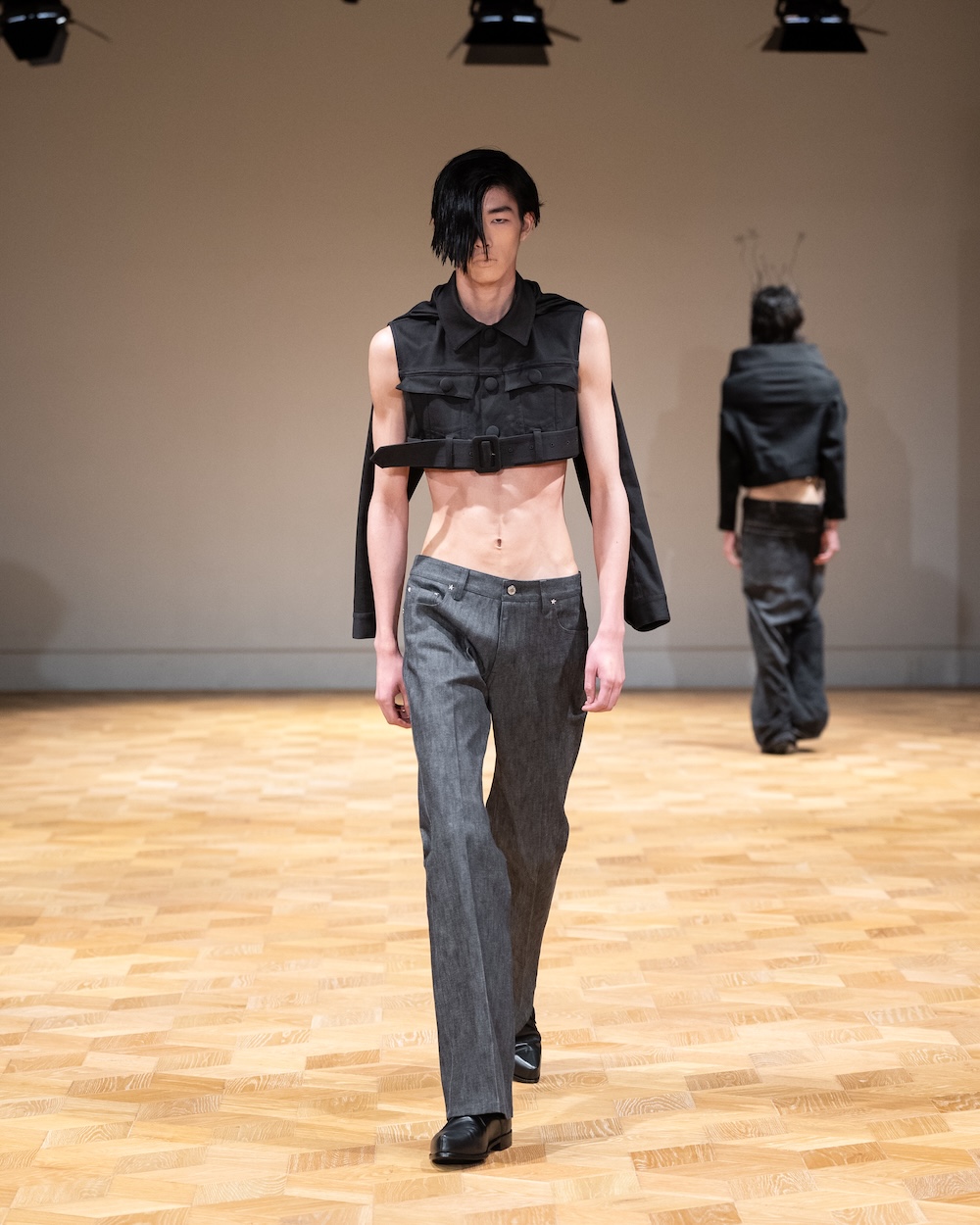
About 2026 SS collection
── Why have you chosen Tokyo (Rakuten Fashion Week TOKYO) as the venue for presenting your collection?
ORIMI seeks to re-examine the unique value born from Japanese culture while expressing itself through a global lens. As a first step, we believe Rakuten Fashion Week TOKYO is the ideal platform to present our vision to an international audience. Beyond simply showcasing a collection, we view this as an opportunity to redefine and reinforce the core identity of our brand.
── What is the concept / image for your brand’s 2026 SS season?
In an era where “comfortable and correct clothing” is widely favored, this collection dares to insert intentional “noise” to affirm individuality and a sense of discomfort. It begins with a question: why must clothes always feel “just right”? By offering garments that are slightly misaligned with the wearer’s character and intentionally imperfect in styling, the collection seeks to generate new aesthetics and perspectives through disrupted balance—embracing the beauty found in subtle styling errors.
── What is your vision for your show / installation?
For this show, we have appointed Leung Pak Ting—a Copenhagen-based stylist known for his work with OUR LEGACY. By incorporating a more international and culturally attuned perspective into the ORIMI worldview, we aim to offer a fresh interpretation. The show will center around the theme of “the coexistence of structure and dissonance,” using the entire space—including music direction—to convey the concept. Through styling and staging that feel subtly “off” from the everyday, we aim to evoke a quiet yet powerful sense of estrangement.
Future
── What are your brand’s future outlook and goal?
Building upon the aesthetic and values cultivated in Japan, we aim to expand ORIMI’s presence in international markets. We particularly look to deepen partnerships with select stores across Asia and Europe, developing our vision in dialogue with diverse cultures and contexts. Our goal is to become a “locally rooted, globally relevant” brand—creating garments that resonate across boundaries while staying true to our core identity.
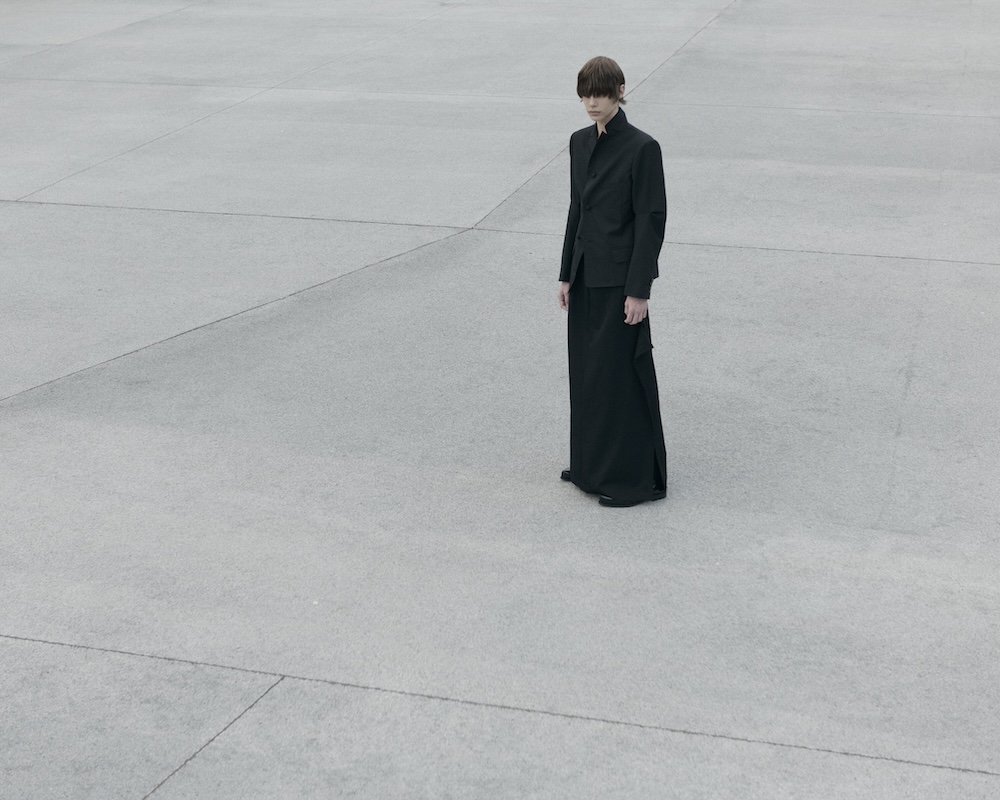
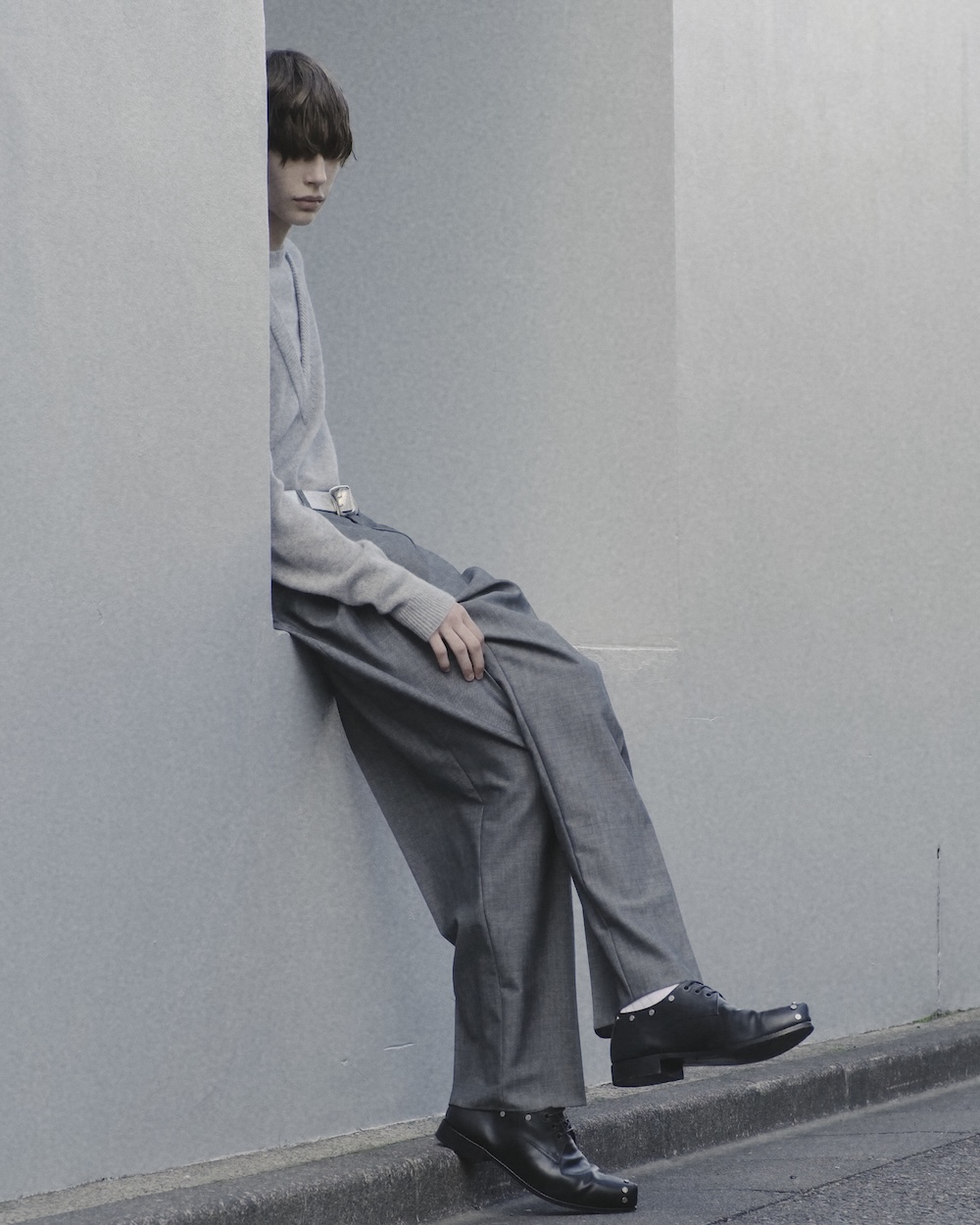
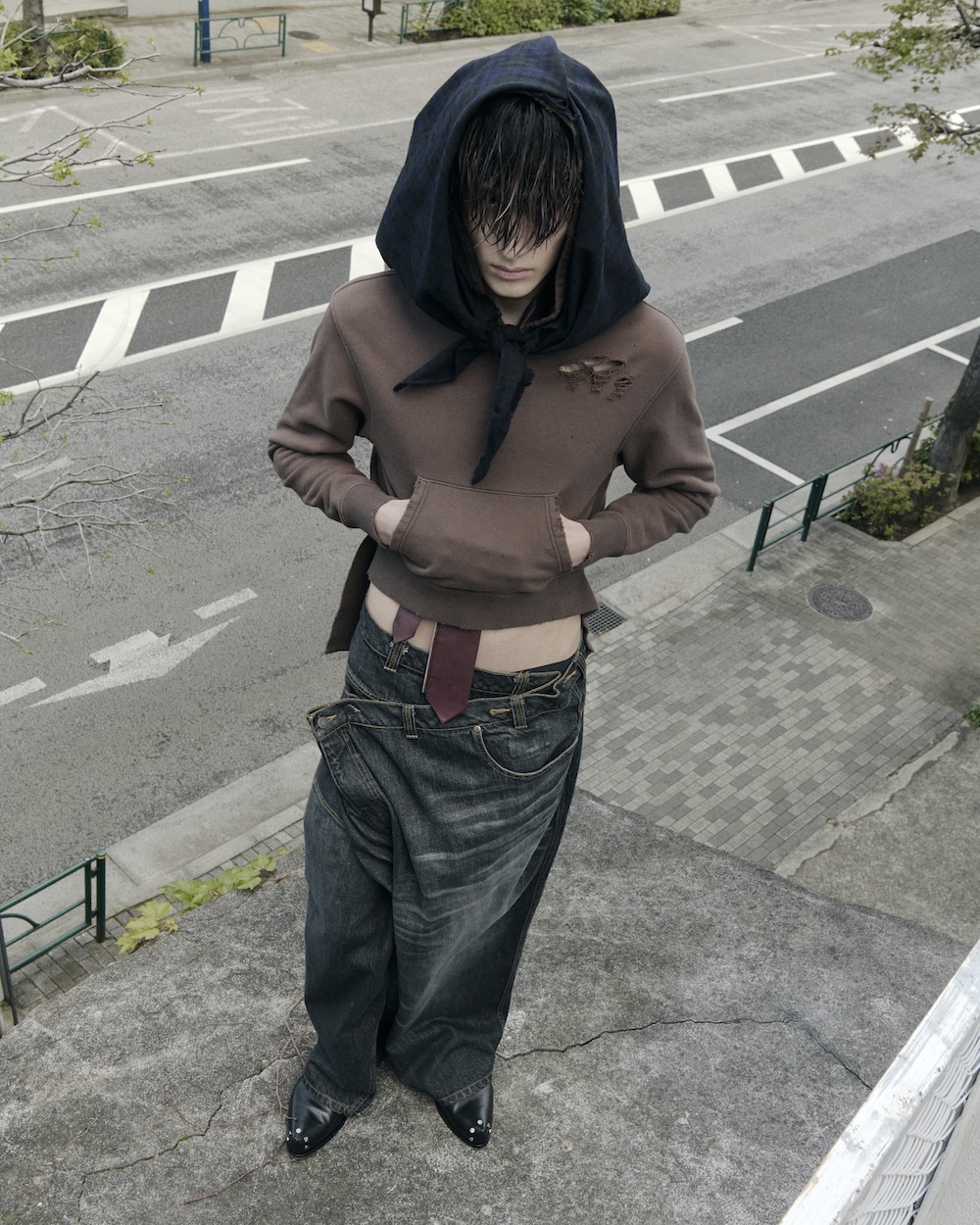
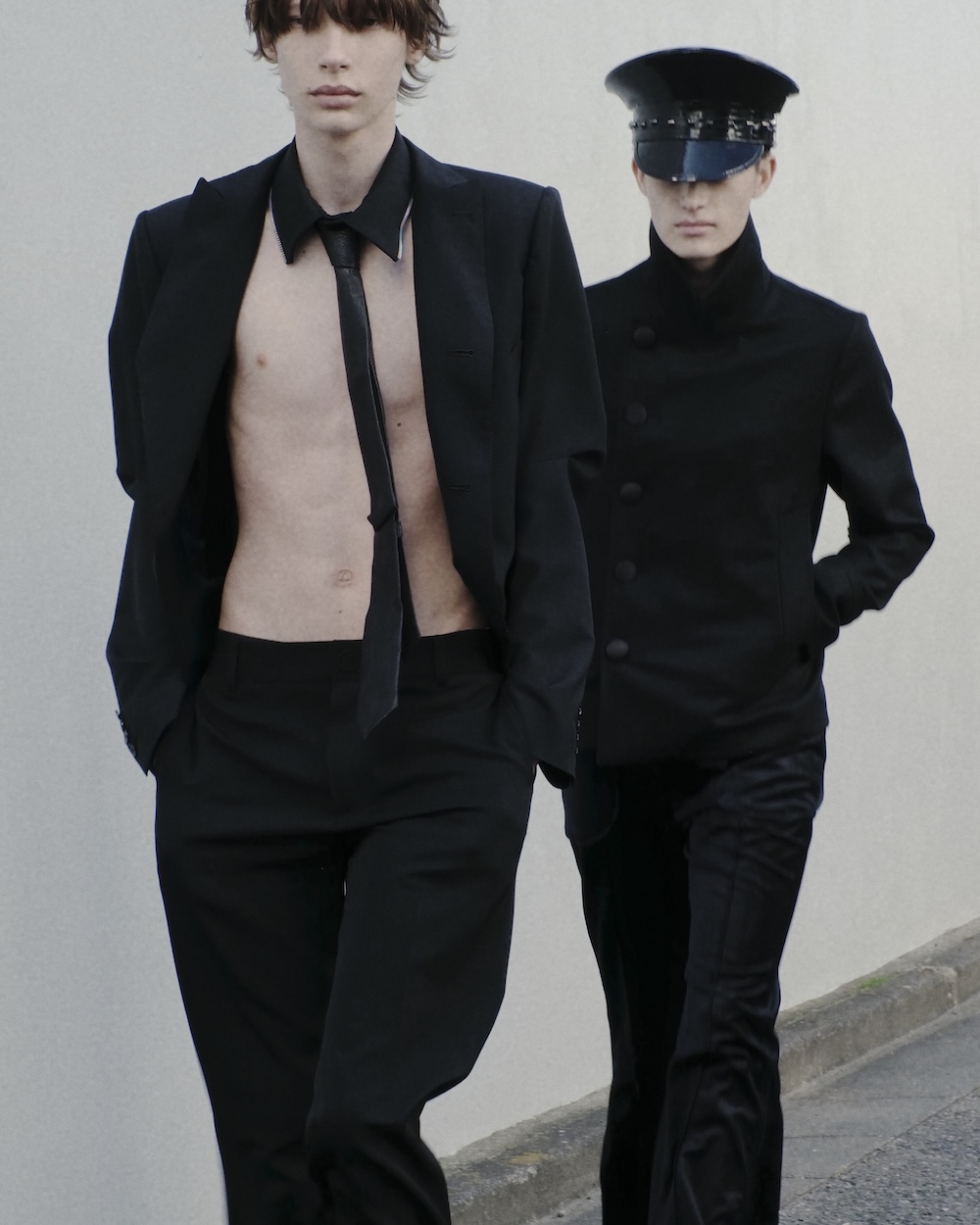
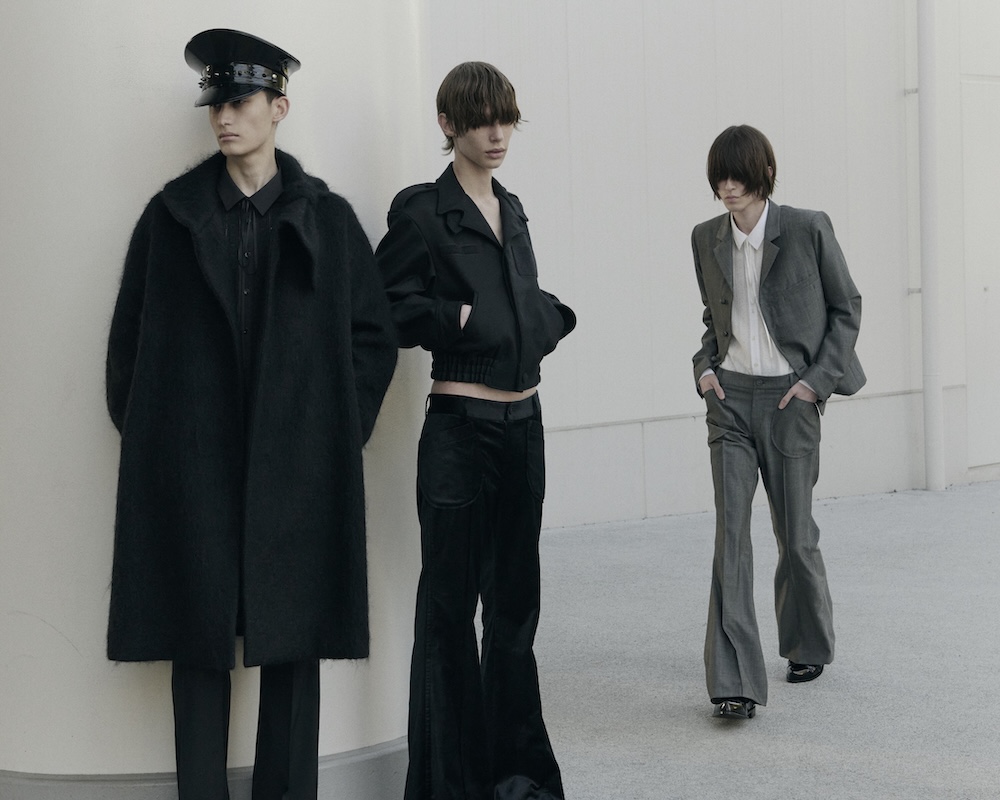
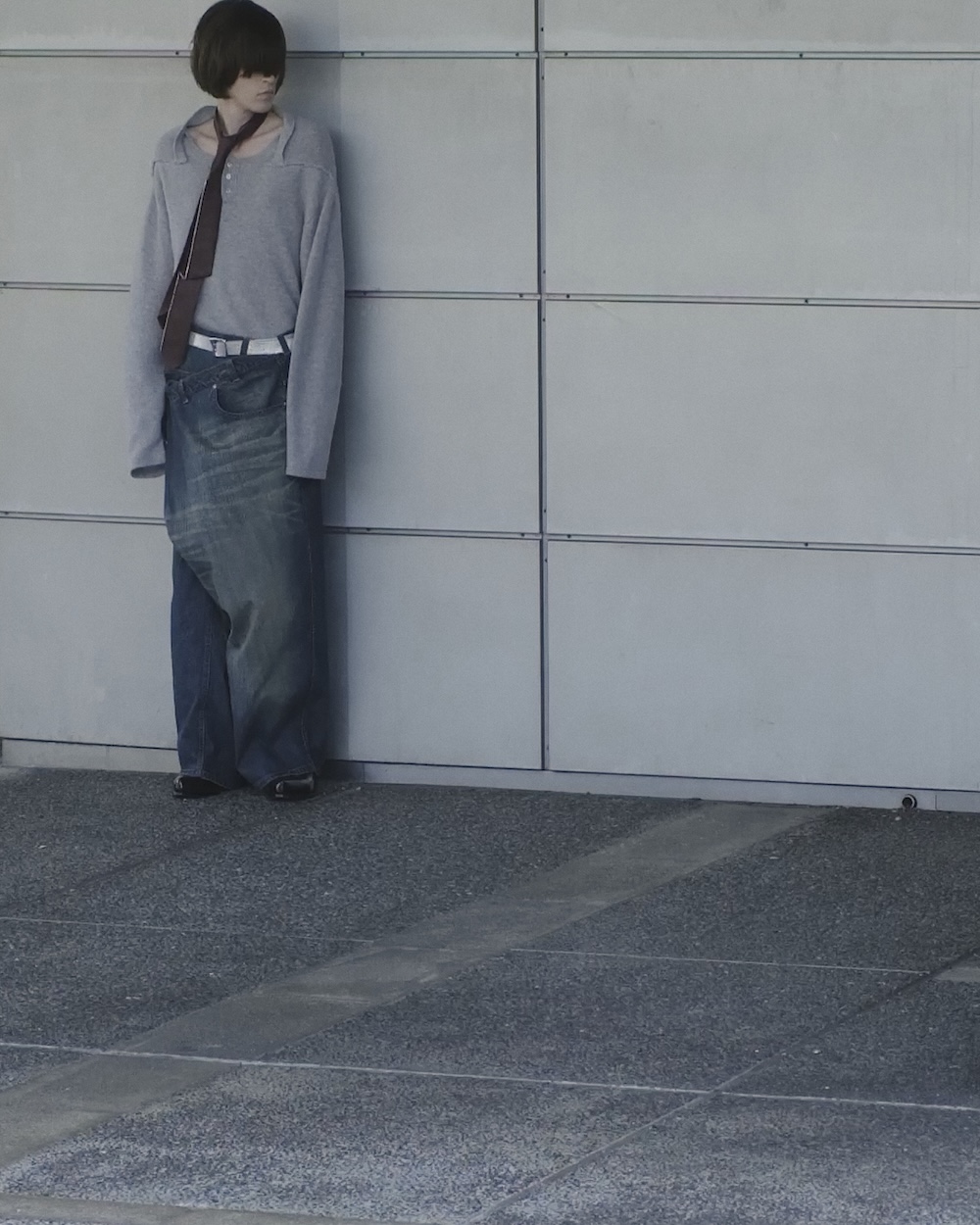
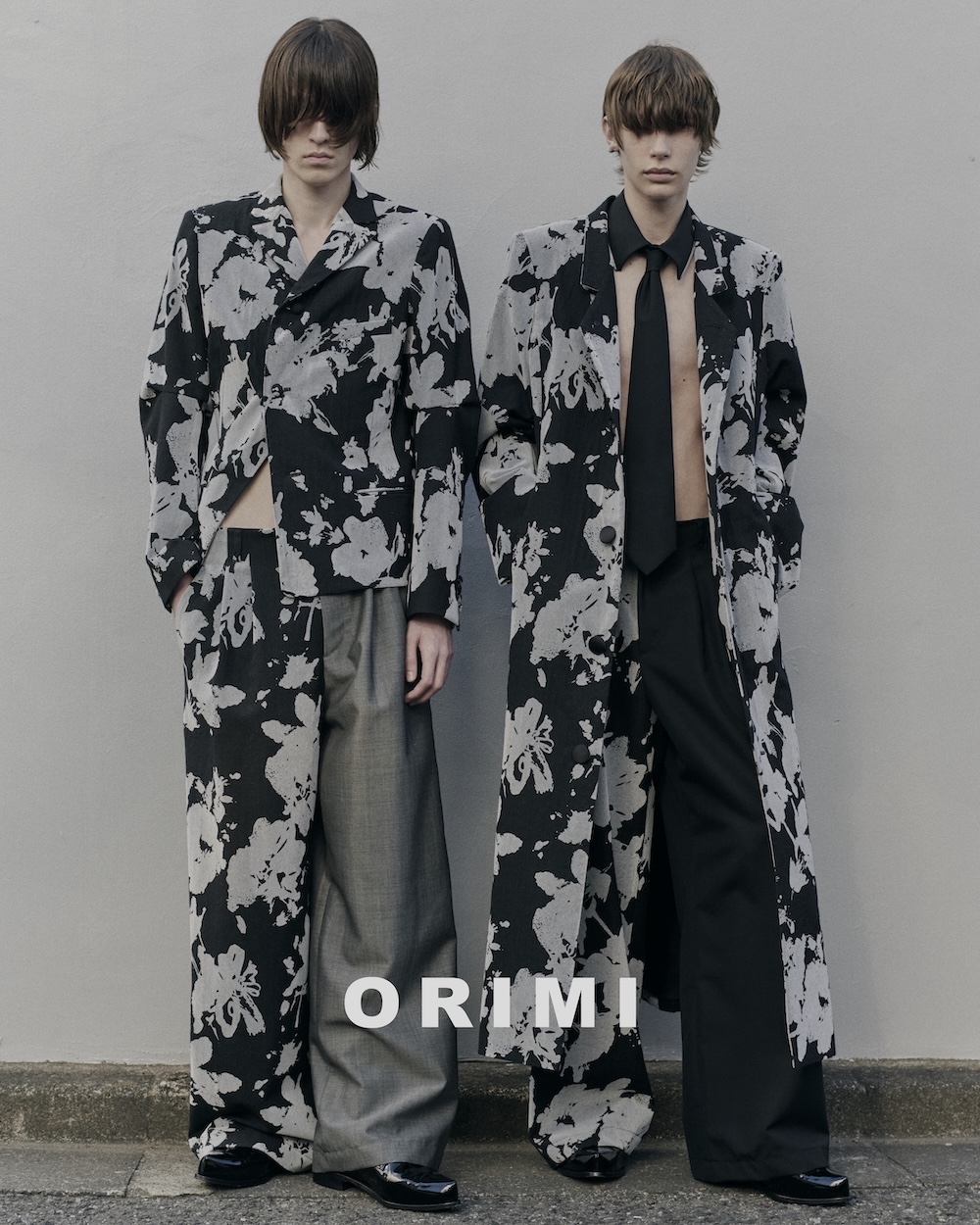
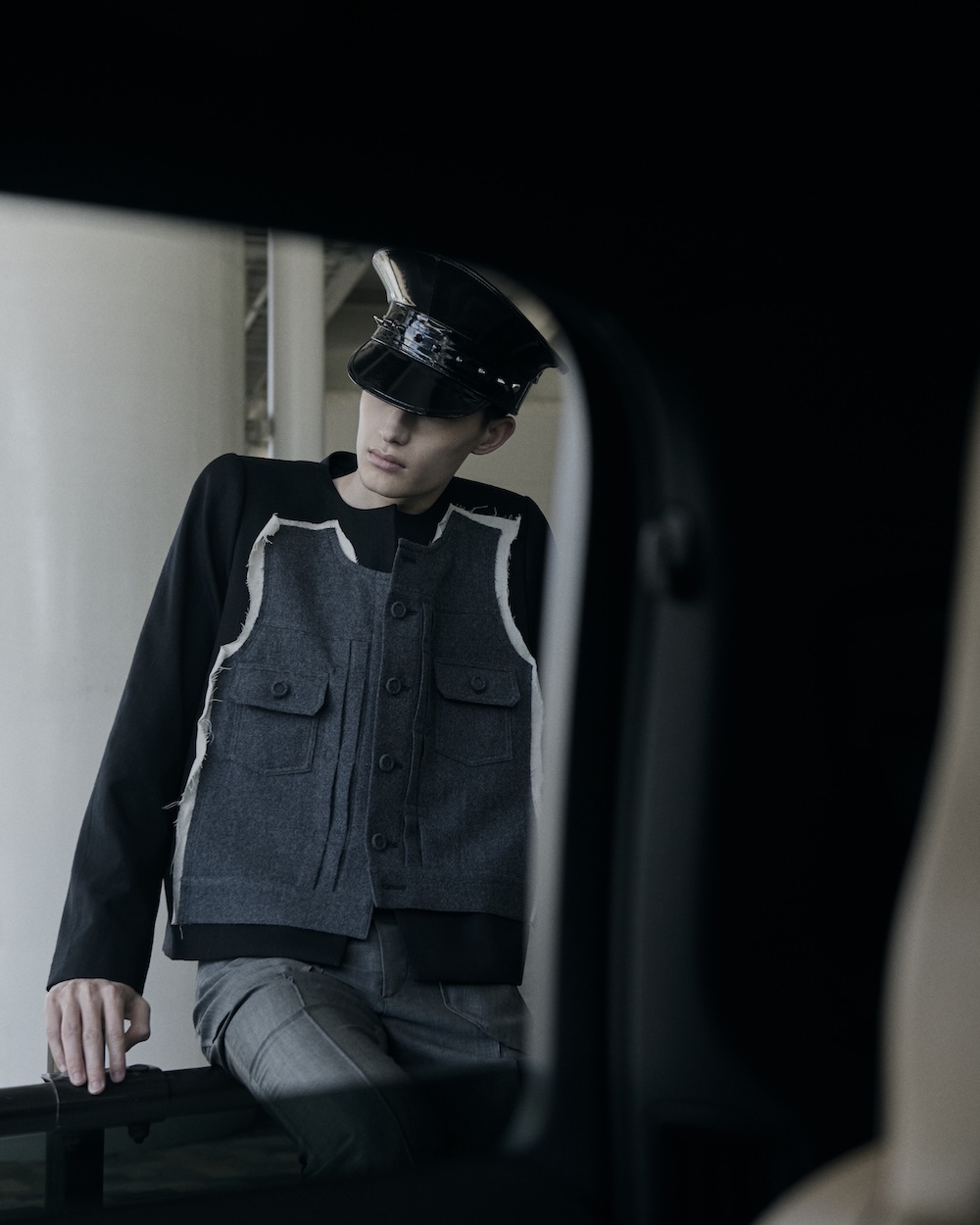
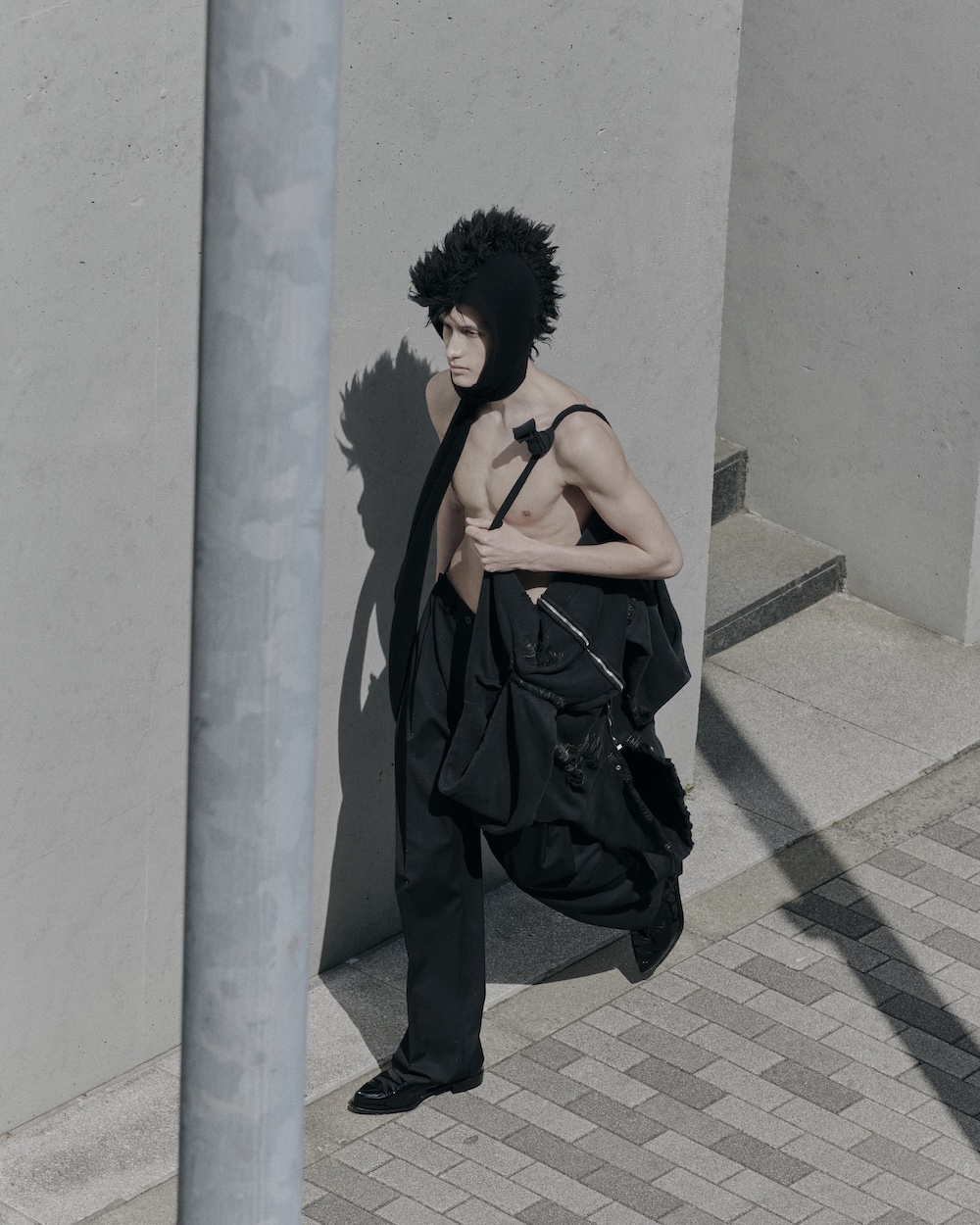
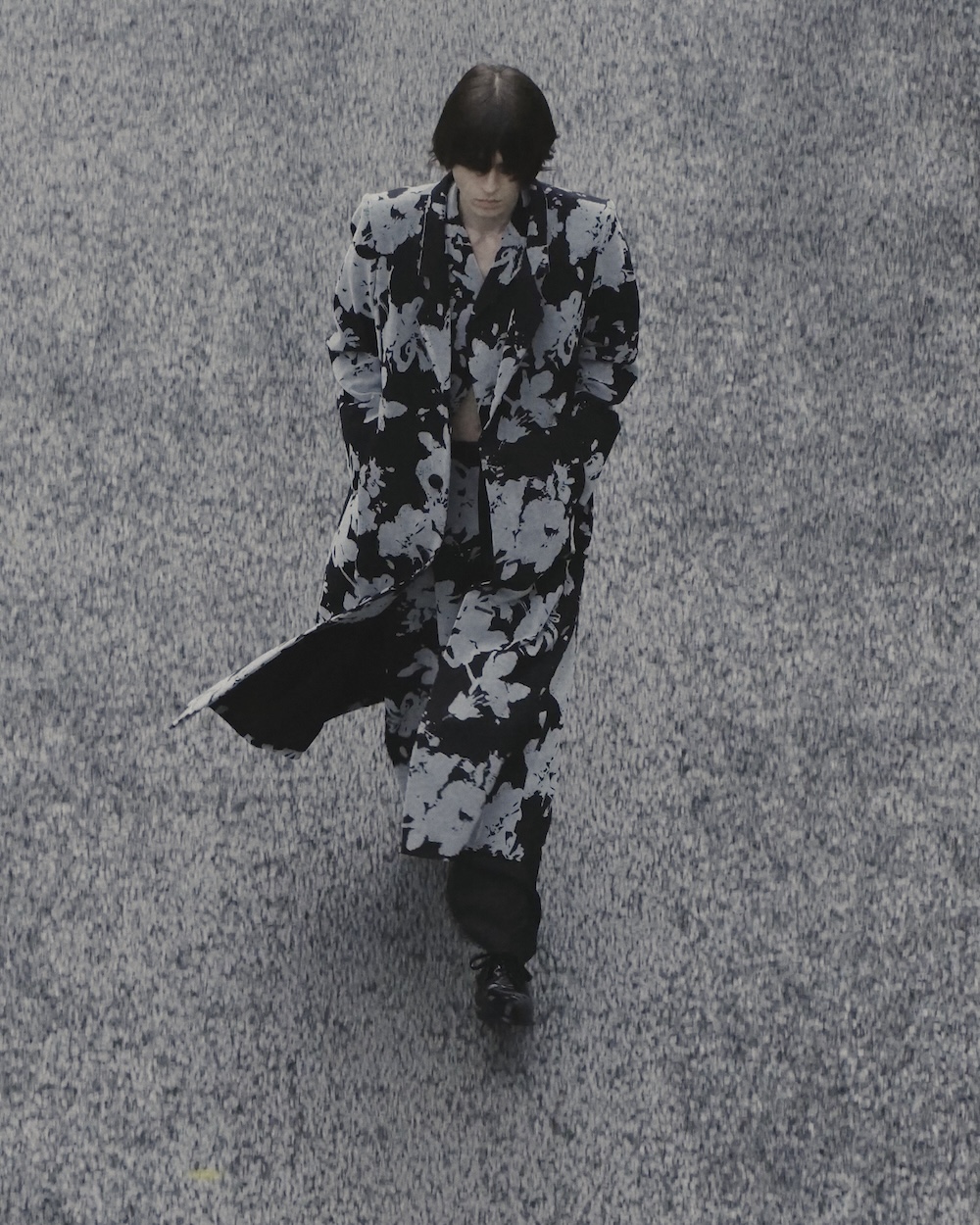
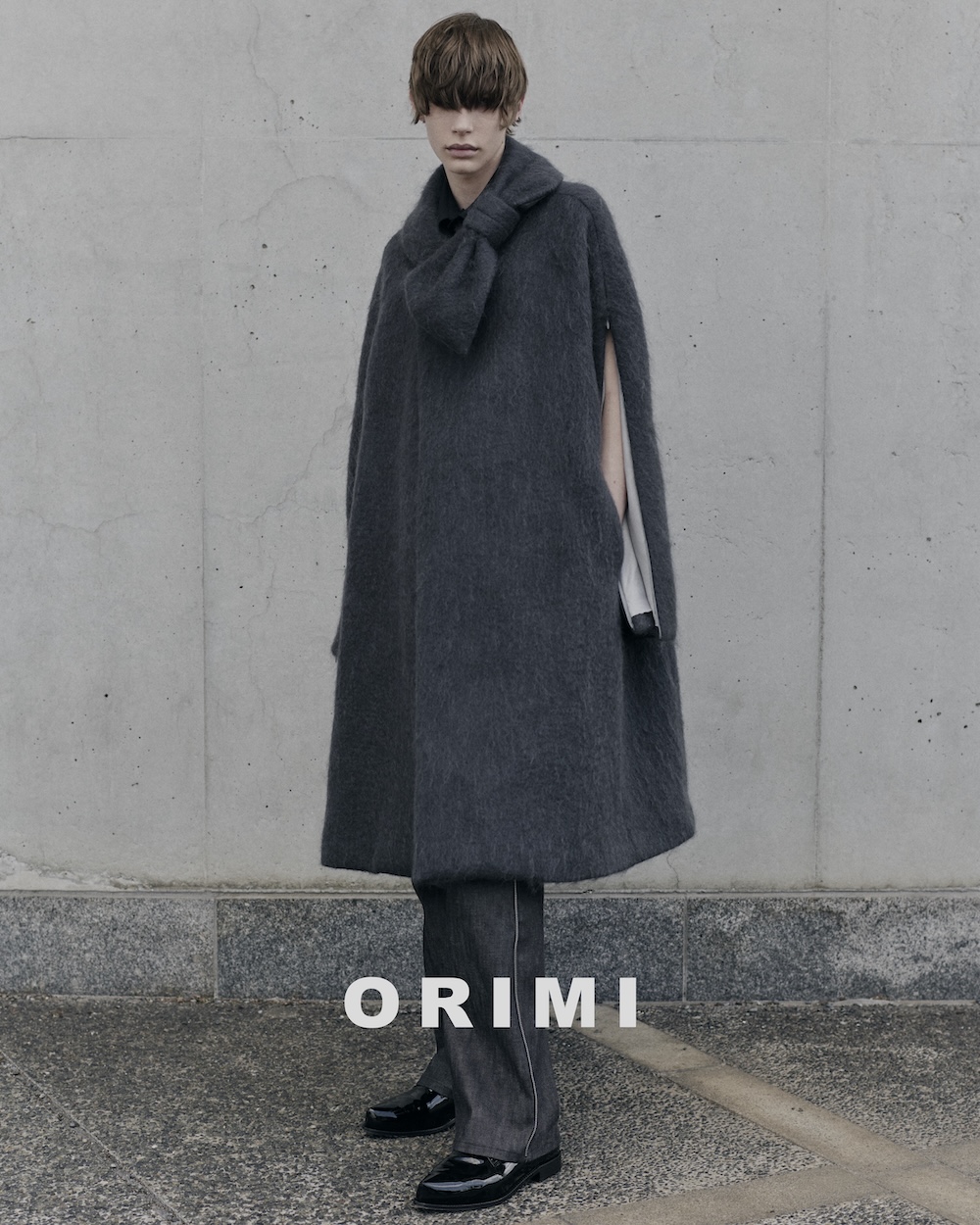
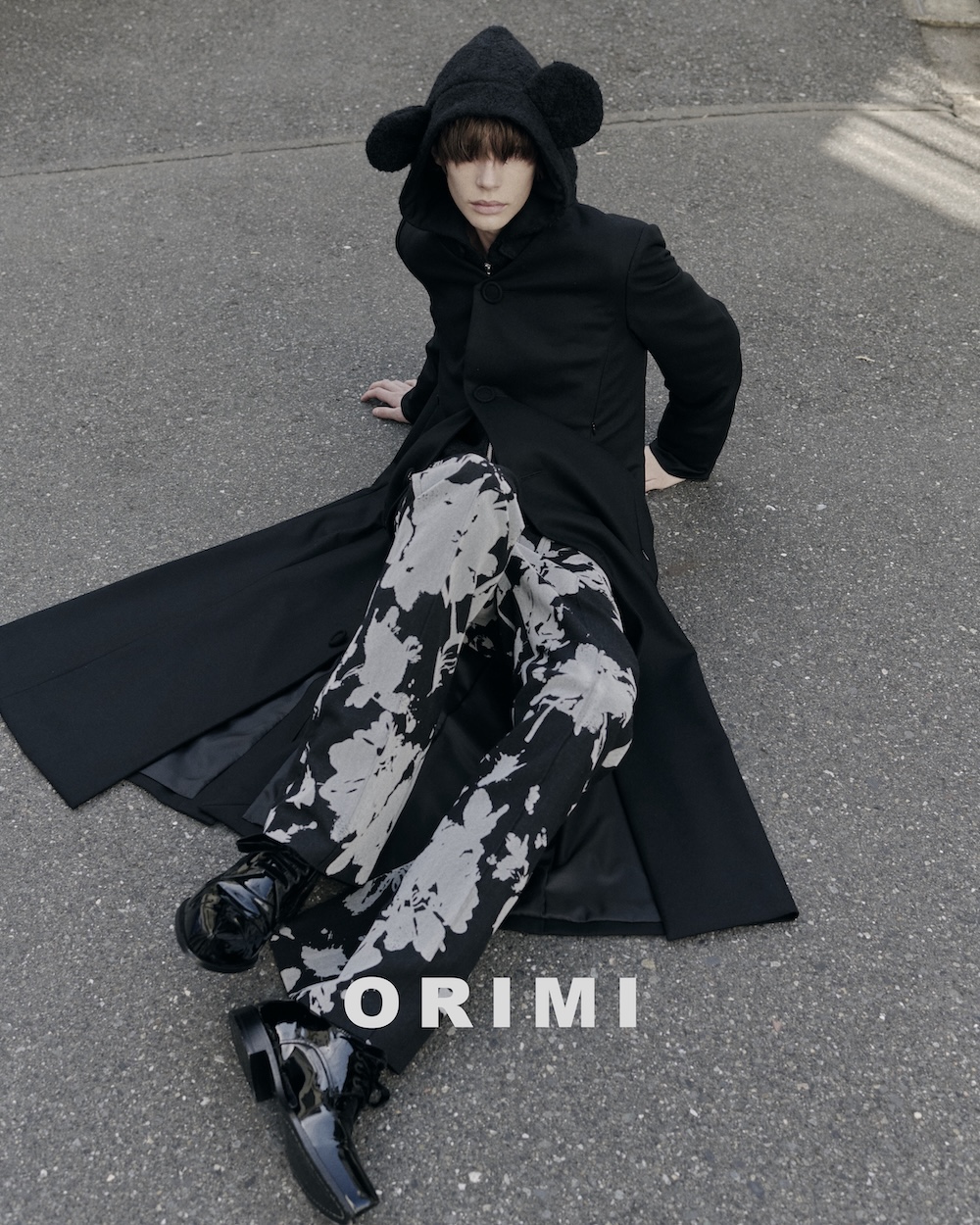
About TOKYO
── What does Tokyo represent for you?
To me, Tokyo is the very frontline of fashion. Especially in Harajuku, individuality and chaos collide to give birth to ever-evolving styles and values. It’s a city where everything is constantly in motion—and where anyone can experiment with their sense of self. Continuing to create clothing in Tokyo means engaging in a constant dialogue with a shifting urban landscape, while continually redefining who I am as a designer.
── Which parts / sites of Tokyo do you like most? Why?
Harajuku is my favorite area in Tokyo. It’s a place where cultures collide, and new forms of expression constantly emerge across generations and genres. Just a few steps away from the bustling streets, you’ll find quiet residential areas and old architecture—this contrast between noise and calm is part of its charm. That layered, chaotic beauty has had a significant influence on ORIMI’s design philosophy.
── What are your favorite / recommended shops (of any genres, e.g. fashion stores, homeware stores, food services), facilities and sites?
・SULLEN TOKYO (Shibuya) A concept-driven shop that seamlessly connects with everyday life. From its curated selection of brands to its spatial design, every element reflects a unified aesthetic. It’s a place where Tokyo’s refined street culture and deep love for vintage clothing come together. ・Katane Bakery (Yoyogi-Uehara) A tasteful bakery rooted in the local community. The harmony between the morning air and freshly baked bread creates a quiet balance with the city. I often visit when I need to clear my mind. ・Factory_01 (Harajuku) My own store and showroom. Tucked away in the backstreets, it’s a space where urban stillness and energy coexist—a foundational place for my creative identity.

![[ORIMI] First Participation Questionnaire](https://rakutenfashionweektokyo.com/en/wp-content/uploads/2025/08/orimi_13.jpg)

